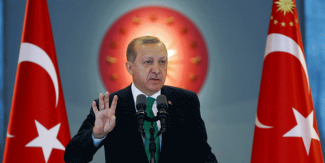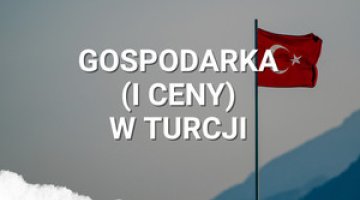Constitutional reform in Turkey: the President takes it all

On 21 January, the Turkish parliament passed a package of controversial constitutional amendments. After their expected approval in a national referendum, which is scheduled for April, the parliamentary constitution currently in place will be changed to a presidential system. In this new order, the President will receive full executive power, and the competencies of parliament, the judiciary and the institutions of control will be seriously reduced. This constitutional reform is intended to be the culmination of many years of attempts by the ruling Justice and Development party (AKP), and its leader and incumbent President Recep Tayyip Erdoğan, to reform the structures of the state. The legal changes are intended to confirm the de facto dominance of the President in the state. At the same time, they will intensify the present social tensions in Turkey. Contrary to the original intent, only a series of constitutional amendments have been adopted, rather than a new constitution itself. This is the result of a necessary compromise between the AKP and the nationalists in parliament. Tension should be expected both during the campaign ahead of the referendum, and in connection with the future implementation of the constitutional amendments.
Turkey in a state of suspense
The planned constitutional reform can be seen as a milestone in the reconstruction of the Turkish state which has been carried out under the AKP’s rule since 2002. Erdoğan has the real authority in the country, even though according to the current constitution the President only performs representational duties. The proposed amendments are intended to legitimise the current state of affairs, as well as further strengthen the President’s executive power.
The AKP has advanced the need for constitutional reform for many years. The basic law, which has been in force (with numerous amendments) since 1982, has long been the subject of criticism as it was adopted under the rule of the military junta between 1980 and 1983. This fact has been presented as an argument undermining its legitimacy. The debate over the need to change the constitution has also drawn upon public demand, broad-based though far from unanimous, for a strong executive power, which Erdoğan has himself personified for some years.
Constitutional change
The package of 18 constitutional amendments will establish a very strong presidency by reshaping the model of executive power. The office of Prime Minister is to be abolished. The President, who has the right to retain membership of a political party, is to become the head of government, and will appoint his ministers and vice-presidents himself.
From the President’s point of view, the decision to hold presidential and parliamentary elections on the same day is an important advantage, as in the current conditions this would guarantee Erdoğan a majority in parliament. The parliamentary term will be extended from four to five years; its current term ends in 2019.
The changes to the constitution also assume the establishment of the President’s de facto control over the sphere of justice. There are plans to reform the Supreme Council of Judges and Prosecutors, the highest disciplinary body in the Turkish judiciary, which also has broad powers to take personnel decisions. The number of the Council’s members will be reduced from 22 to 13, which will make the process of appointing and supervising them more efficient: four of them will be directly appointed by the President, the next two by the Ministry of Justice which is directly subordinate to him. The other seven are to be selected by parliament. This mechanism means that the head of state will in practice have control of the judiciary.
The proposed reforms therefore signify profound changes in the mechanisms of governance and the competences of the President, although the foundations of the state as expressed in the first four articles of the constitution, which establish the Republican regime and the secular nature of the Republic, remain intact, which has hitherto been the subject of numerous controversies.
The political game and the prospects for implementation
The way in which the government managed to push through the constitutional change project shows that despite their growing authoritarian trends, Erdoğan and his entourage have been forced to engage in tactical manoeuvres with other actors in the Turkish political system. 339 deputies voted to adopt the reforms, and 142 against; the majority necessary to submit a motion to a referendum is 330 votes.
The process of introducing presidential rule, which had already been ongoing for many months, was accelerated after the failed military coup on 15 July 2016. The provisions adopted are the result of political horse-trading with the Nationalist Movement Party (MHP), which has agreed to support the project while at the same time forcing the government to introduce it as an amendment to the existing basic law instead of writing a new one. The nationalists also managed to push through the formal continuation of the republican and secular foundations of the state.
The nationalists have expressed their partial support (albeit enough to pass the vote) for the presidential system by adopting the AKP’s point of view, according to which the constitutional system must be adjusted to fit the facts. In addition, both parties agree that the strengthening of executive power should serve as a panacea to the current ills of the Turkish state, such as its progressive destabilisation and the rise of terrorism (of Islamic and Kurdish origin). The remaining two opposition parties, the centre-left Republican People’s Party (CHP) and the pro-Kurdish Peoples’ Democratic Party (HDP), are sharply opposed to the change in the system. The CHP, in principle, is in favour of maintaining the parliamentary republic, while the HDP has called for a radical decentralisation of the state.
Now that the reforms to the Turkish constitution have been voted through in parliament, they are waiting for confirmation by a simple majority in a referendum. According to the polls, public support for the presidential system ranges from 45 to 52%. The government will thus probably seek to intensify the polarisation of society, and the next two months will witness an intense and aggressive referendum campaign. The government will benefit from the fact that they control over 70% of the media market in the country, whereas the opposition media are being systematically taken over or closed down. In addition, based on the example of previous campaigns, the government may seek to try to intimidate the electorate. Additional factors affecting the mood of the campaign will include the state of emergency, which has been in force since July, and the internal instability caused by a series of terrorist attacks. Thus, although the Turkish authorities have not hitherto been accused of electoral fraud, it is difficult to conclude that the referendum will be held in conditions of full pluralism.
Conclusions
The constitutional changes currently being finalised in Turkey are an important part of the fundamental redevelopment of the state under the rule of the AKP. They confirm the depth to which the earlier system has already been dismantled, the effective centralisation of power, and the movement of the decision-making centre to the presidential palace. In addition, the reform illustrates the effectiveness of President Erdoğan’s authoritarian actions. Its adoption would contribute significantly to the strengthening of those trends.
At the same time, the nature and manner of the changes have revealed the significant limitations which still surround Erdoğan. For example, at this stage the President has been forced to make compromises with the nationalist MHP, which he did in order to ensure the support of that party’s electorate. He was also obliged to replace his original plan to transform the state by adopting an entirely new constitution; instead, he opted for a profound change in the political system through the revision of the old constitution.
Both the just-launched campaign and the possible implementation of the referendum will generate further tension inside Turkey. The root-and-branch reconstruction at the levels of the Republic of Turkey’s society, politics and identity being conducted by Erdoğan’s party, as well as the tension generated by the international crises in which Turkey is playing an active role (especially in the Middle East), is far from complete.
Mateusz Chudziak, with cooperation from Krzysztof Strachota





